Power plant ‘war’ pits locals against feds
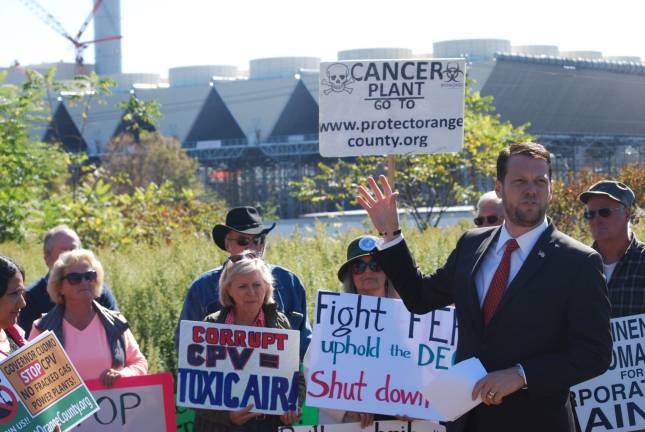
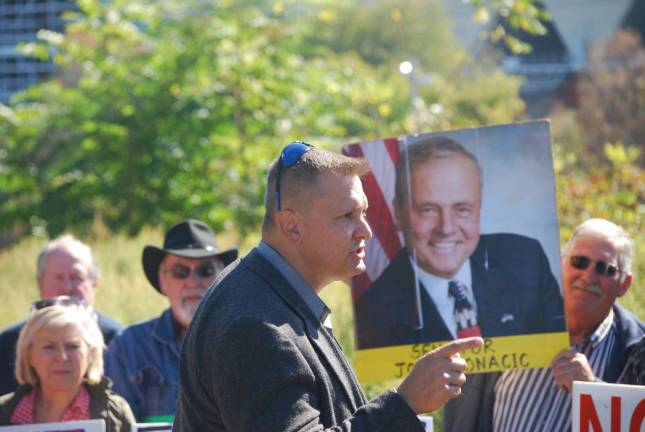
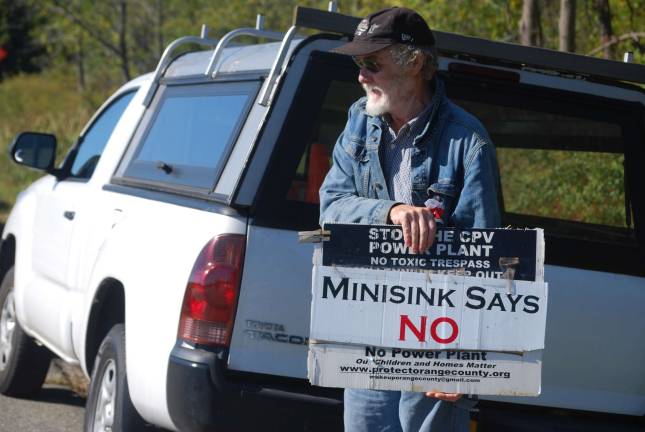
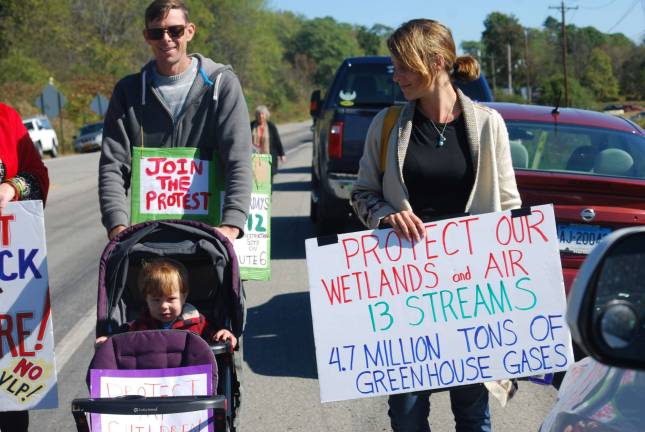
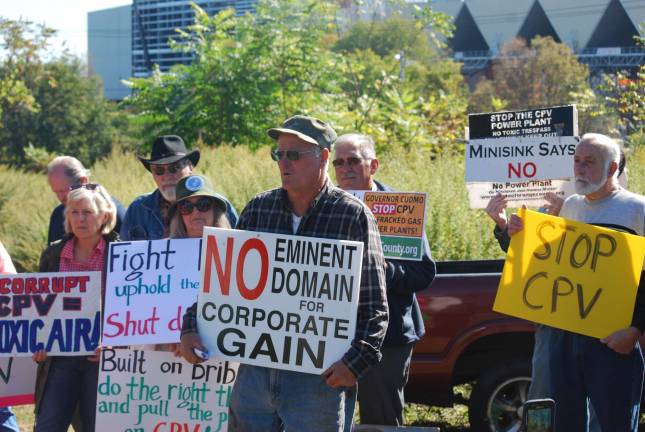
“At what point did we transition from starting wars looking for weapons of mass destruction, to building them in our own backyard?” asked Patrick Davis in a booming voice, pointing to the power plant rising behind him. Davis, an Iraq veteran, is the Democratic candidate for Orange County Executive. His shiny-shoed presence at a press conference in October marked a turning point: county politicians from both sides of the aisle have joined the citizen-led battle against the $900 million fracked-gas plant.
A lot has changed since 2012, when the Orange County Legislature supported the project unanimously. New York banned fracking, for one. A top aide of Governor Cuomo’s was charged with shaking down CPV in exchange for ramming it through the approval process. Then in September, the New York State Department of Environmental Conservation made the call that everyone had been waiting for. It denied the all-important water quality permit that would have allowed CPV to build a pipeline extension to bring fracked gas to the plant.
The feds promptly overruled the state’s decision. The Federal Energy Regulatory Commission, known to be a rubber stamp for the industry, said DEC had taken too long to make its decision and forfeited its jurisdiction — turning this melee into a question of state’s rights in the face of federal overreach. That’s when the county legislature broke its silence, adopting a Republican-sponsored resolution urging the state to take legal action to challenge the feds.
“The process is flawed, there’s no doubt about that,” said Matt Turnbull, the Democratic minority leader of the county legislature, at the October press conference. He said he mistrusted CPV’s back door dealings ever since the company bought him lunch. “It should be in the hands of the citizens. They should be the ones making these decisions.”
As Dirt went to press, DEC had days left to challenge FERC. The result of this power struggle will determine not only the fate of the CPV plant, but also whether states have any say at all over what gets built on their land, or whether pipeline companies can run to FERC any time they don’t get what they want.
“Thank you to the veterans for being onboard,” said activist Pramilla Malick, at the press conference. The mother of four has led the fight against CPV on every front, running for state senate in 2016 and spending a week in jail in July. “I certainly feel like we’re at war.”
Becca Tucker
“I’ve been doin’ this so long, my sign’s all beat up. We never got a say, but of course FERC doesn’t listen to the local people. As we all know.” – Bill Sandy of Minisink, teacher and archeologist
“It is an ancient technology already and it hasn’t even opened yet. You can see it driving up to Newburgh now. You can see it down to Warwick Valley. Wait ‘til it turns on. The first six months, as they’re priming the gas coming through with diesel. If you’ve never been around it, trust me. Look at the size of that thing.
We all grew up here. Those of you that are not from here, you moved here for a reason. It’s the beauty. That’s why I came home after all this time, and I’m not going to be knocked down. I’m willing to put my face out there because this is our home. This is where I grew up and I want to make it a place for the new people that want to move to Orange County and have a safe home, good jobs, clean jobs, clean air, they can still buy the onions and celery from the black dirt.
- Ken Pinkela – 27-year Army veteran, running for county legislator, Wawayanda District 2
“When Millennium Pipeline came in we didn’t want the pipeline in our property. And they brought eminent domain papers in one week. [Now] the onion harvester can’t get in and out of the fields because the roadway is about three foot higher than the fields. The pipeline area is sinking… I got a 40-acre block where the machine cannot go in and out of the fields. It was Millennium’s obligation to help us to do something to get the machine in and out of the fields and they failed to do so. They want to sit down now and we’d work it out on paper, well what’s working it out on paper got to do with getting my crop harvested and getting it out of the field?
- Jim Bastek – Onion farmer in Pine Island, whose farm is cut through by Millennium Pipeline